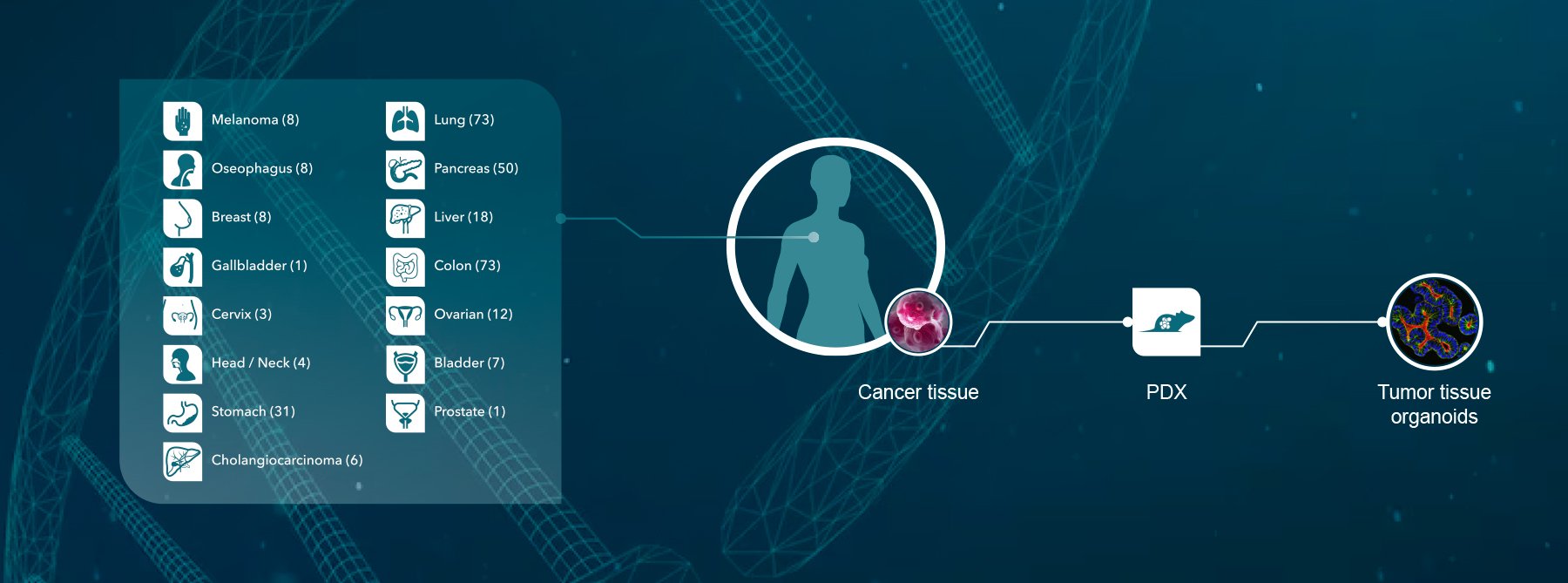The AACR-NCI-EORTC International Conference on Molecular Targets and Cancer Therapeutics, recently held in Boston, hosted by three top-tier cancer organizations — the American Association for Cancer Research (AACR), the National Cancer Institute (NCI), and the European Organization for Research and Treatment of Cancer (EORTC), is the must-attend event to catch up on recent advancements in almost every aspect of cancer drug development and molecular target selection. Crown Bioscience was there to review the best clinical oncology research and showcase our latest data, models and services.
This year 3,000+ attendees from across the globe had the chance to hear first hand the latest basic and translational science developments, including presentations of early clinical trial data such as the Phase I trial of AG-120, a selective mutant IDH1 inhibitor, tested in patients with advanced IDH1-mutant solid tumors; the Phase I clinical trial testing BGB-290, a new PARP1/2 inhibitor, and data on the development of personalized, neoantigen-based cancer vaccines.
Data were presented on research conducted at the University of Texas MD Anderson Cancer Center on a selective TRKA/B/C inhibitor, LOXO-101, that after showing promising preclinical results, was tested in a Phase I trial in patients with solid tumors that carry NTRK gene fusions; as well as on a Phase I clinical trial of IMMU-132, a fist in class antibody-drug conjugate that showed significant benefits in heavily pretreated triple-negative breast cancer (TNBC) patients.
Immunotherapy is still taking center stage with the outstanding plenary sessions from Alexander M. Eggermont who was invited to introduce the topic and its advantages over “mutation-driven drug development” (targeted agents), and Stephen Gottschalk from the Baylor College of Medicine who discussed the latest improvements in the development of CAR T Cells for the treatment of blood tumors.
Besides witnessing the success of the new immunotherapeutic agents in the clinic, attendees were invited to discuss how to improve existing therapies, particularly with regards to the emergence of drug resistance. During the plenary session on drug resistance, the mechanism of resistance to ibrutinib, a powerful targeted agent currently tested in clinical trials on a subtype blood cancer called chronic lymphocytic leukemia (CLL), were described, as well as data on the mechanisms of resistance to therapies that target hormone receptors, which are used to treat breast and prostate cancers.
It is becoming increasingly clear that, in order to achieve a durable control of cancer, combination approaches involving targeted therapy, immunotherapy or both are required. Several ongoing studies are testing these combinations. For example, data on combination of RAF and MEK inhibitors with the immune checkpoint inhibitor pembrolizumab, an anti-PD1 antibody, were presented sustaining the hypothesis that giving targeted therapy, first followed by immunotherapy could potentially make the tumor more “immunogenic” so that it becomes more easily detectable by the immune system and the durability of the responses is increased.
The general consensus among specialists seems to be that an improvement in the monitoring of treatment responses and relapses is urgently required. State-of-the-art technologies, such as single-cell and liquid-biopsy are emerging to evaluate tumor cell states and therapy outcomes.
Crown Bioscience participated with great interest to the discussion on the approaches to overcome drug resistance and the formulation of new combination strategies. Our data, presented as nine posters discussed the variety of models we offer to investigate mechanism of drug resistance and in vivo responses to immunotherapy, including models of acquired resistance to targeted agents, chimeric human-mouse models for anti-PD1 efficacy evaluation, syngenic models that have been genomically profiled and can be used to test novel combination strategies, including combination of image – guided irradiation (IGMI) with immunotherapy, and models with a transiently humanized immune system for the evaluation of T cell-dependent Immunotherapies.
For your copy of Crown’s AACR-NCI-EORTC posters contact us today at busdev@crownbio.com








